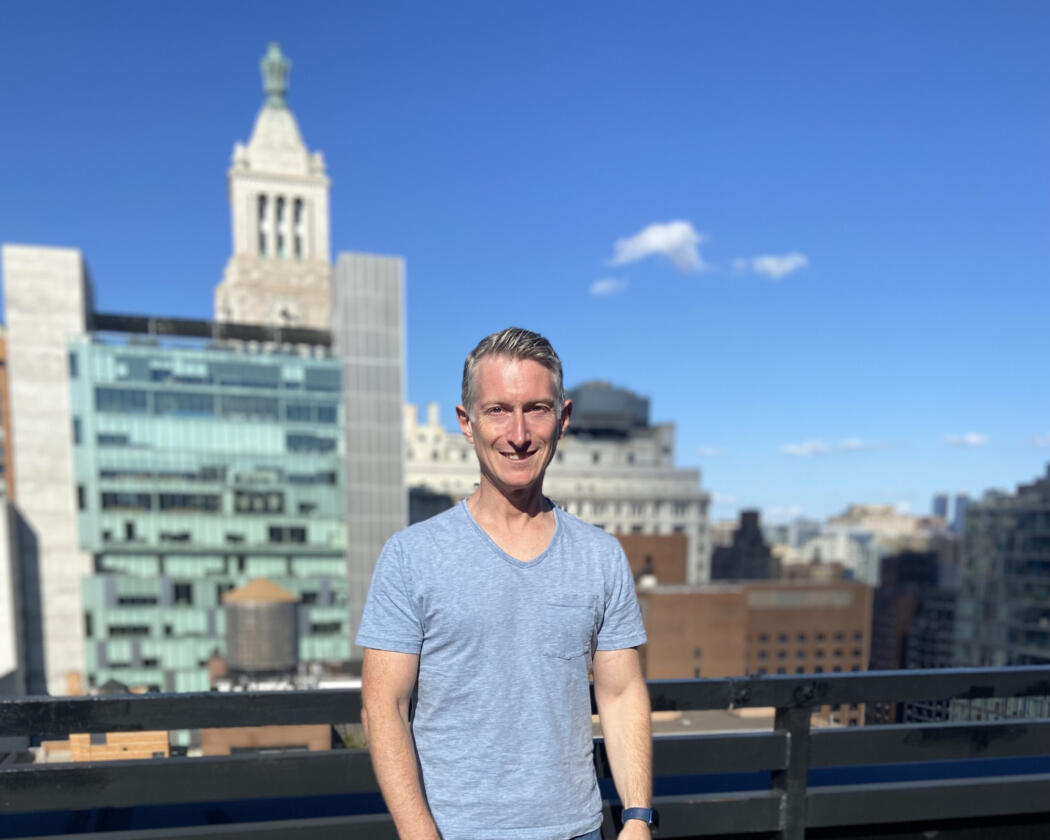
From nightclubs to boiler rooms
Get to know Eric Einstein, the co-op member behind the International Tailoring Building’s HVAC revamp
Eric Einstein, president of the co-op board at 111 4th. Ave., didn’t have prior experience with clean energy retrofits, but his prior business experience helped him learn on the job. Photo: Mary Cunningham
Between his two roles as president of his co-op and the owner of four of the most popular gay bars and clubs in Manhattan, Eric Einstein rarely has time to slow down and catch his breath.
When he isn’t crunching numbers, paying bills, dealing with landlords, and navigating the red tape of New York City government, he’s the in-house handyman for his businesses. Wherever there’s a building problem, he’s not far behind.
“Instead of calling a plumber or an electrician to do little repairs, I’ve taught myself,” said Einstein.
That’s why in 2017, when he found out his co-op’s heating and cooling system was on its last leg, Einstein was the first to raise his hand to help. With nearly 20 years of business management experience under his belt and 15 years living in the International Tailoring Company Building, he was the perfect candidate to shepherd the project.
A meticulous thinker and problem-solver by nature, Einstein approached the project the way he would a major capital investment for one of his bars: He went through a detailed research process to familiarize himself with pricing options, vendors, and system mechanics.
“I always say to myself, there is nothing complicated about any of this,” he said. “It’s really just learning it. And once you understand how something works, then you can fix it, or rebuild it.”
His months-long investigation led him to Ecosystem, an engineering and construction company that he liked for the fact that it specialized in energy solutions. But even after he found the company, he continued sizing it up.
“Eric was really smart when he vetted us very carefully to make sure that we were the right company and that it was the right plan,” said Stephanie Schwartz, the director of marketing communications at Ecosystem.
The price tag for the plan they devised was not insignificant: It would cost more than $9 million to wean off the oil- and gas-powered system. Luckily, Einstein had had the foresight to think ahead, thanks to his business acumen. Back in 2013, he started planning for an unexpected expense such as this by asking residents to save ahead, instead of having to pay out of pocket for a big expense all at once in an emergency.
“I was like, this is crazy. That’s not how I run my business,” Einstein said. “We have a huge asset. We need to take care of it.”
Planning ahead also gave Einstein a headstart on complying with Local Law 97 (LL97), New York’s City directive to lower carbon emissions in the building sector. The new law wasn’t on the books in 2018 when Einstein started drawing up plans with Ecosystem, but when it was passed the following year, Ecosystem and Einstein were prepared to readjust.
“[Ecosystem] basically said if we move the heating away from fossil fuels, then you can be in compliance with this law,” said Einstein.
A year on since the hybrid system was installed, Einstein feels affirmed in his decision. Now, he can finally enjoy the sunset from his 10-foot by 6‑foot loft windows without having to pull out an orchestra of fans to stay cool. His apartment has officially crossed the Rubicon into the 21st century.
